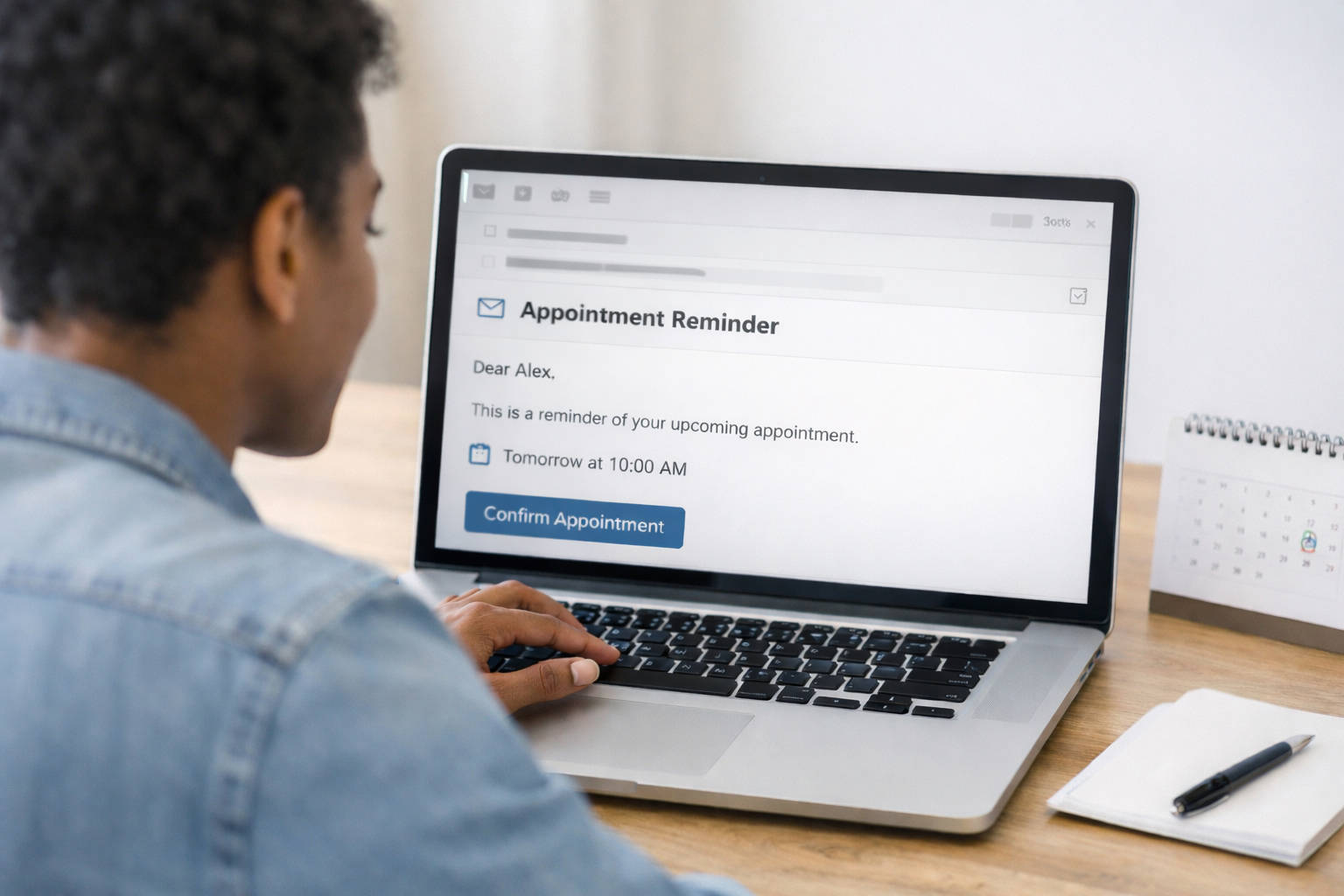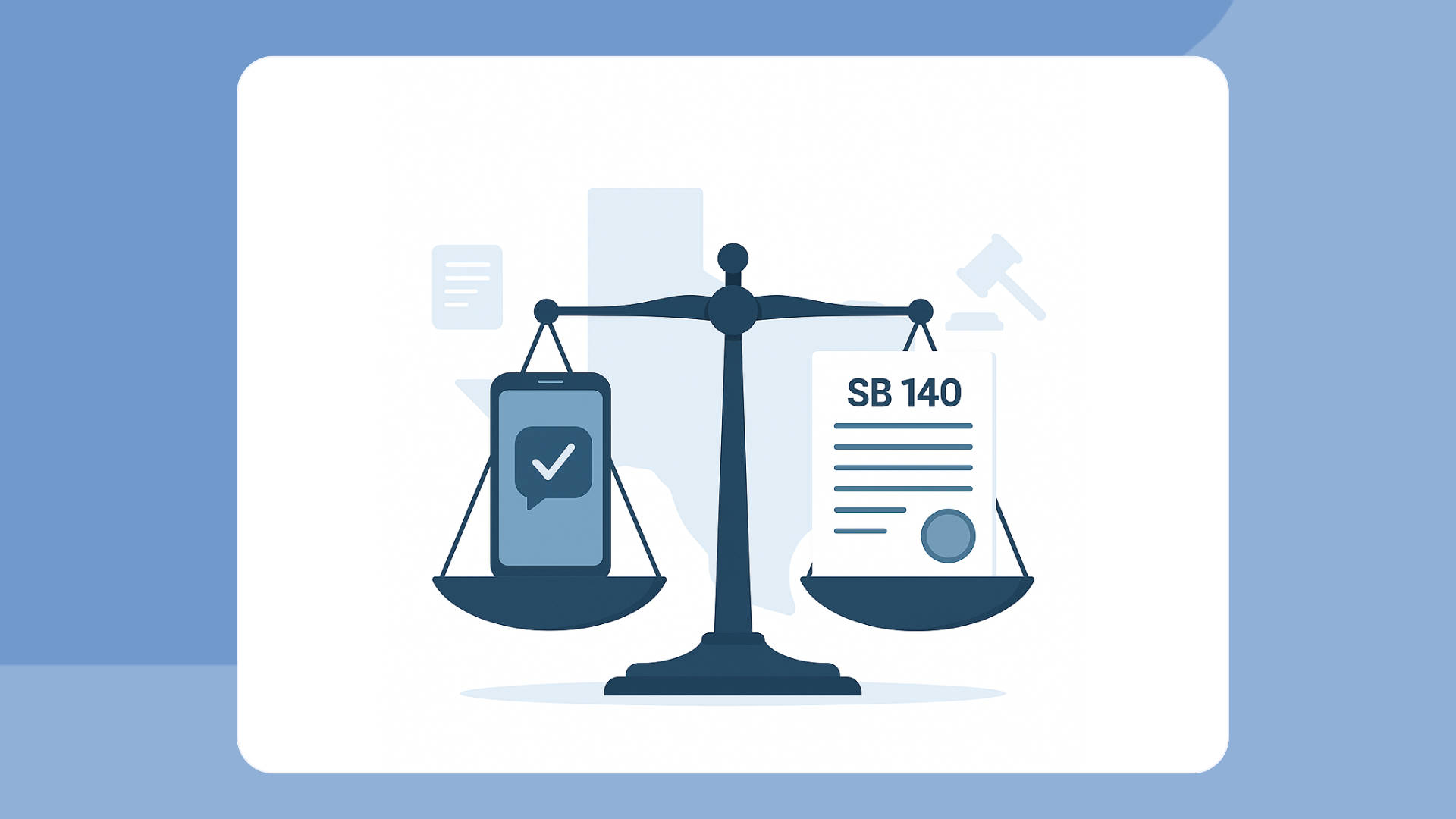Estimated reading time: 6 minutes
Apptoto cannot provide legal advice. However, we feel it’s important to inform our users of the Federal Communications Commission (FCC) and Telephone Consumer Protection Act (TCPA) regulations surrounding automated appointment reminders. Do not use this information as a substitution for legal counsel.
TL;DR: If you can show that a client gave you their wireless number, then you effectively have express consent to send non-healthcare appointment reminders to that client via automated text or voice call.
Our clients often ask us if obtaining express written consent is necessary before sending automated voice call (or text) appointment reminders. Ultimately, you (as a user of Apptoto or any automated appointment reminder software) are responsible for staying in compliance with the Telephone Consumer Protection Act (TCPA). So it’s important you understand what level of consent you must obtain before sending out automated messages.
Sending appointment reminders is an efficient way to reduce no-shows. No-shows can hurt (and sometimes kill) your business. So we believe you have every right to try and protect your business. If a client books a visit with you, you should have the right to confirm they are still coming before the appointment. On the flip side, it’s important that SMS/Texting remains a clutter-free communication channel.
Luckily, the Federal Communications Commission (FCC) has established regulations covering when and what is okay to send automated messages. The main bodies of work involved are the original Telephone Consumer Protection Act of 1991 (TCPA) and a more recent 2015 TCPA Declaratory Ruling and Order. You can find the PDF version of the ruling here.
What follows is our interpretation as it relates to consent for non-healthcare appointment reminders.
What is the TCPA?
The Telephone Consumer Protection Act of 1991 restricts the use of telemarketing (i.e., telephone solicitations). The act was passed in response to a growth in telemarketing calls at the time. It includes many stipulations for telemarketers, including the National Do Not Call Registry. It also includes rules for what type of messages a business can send without first gaining explicit consent from the receiver. The TCPA also allows for persons to sue violators.
Review a summary of the rules here: TCPA Rules Summary PDF.
Originally, the TCPA did not consider calls sent to persons that have an “established business relationship” with your business as “telephone solicitations.” This meant that if someone bought something from you previously or had an appointment with you, you could contact them without express written consent. The FCC removed the “established business relationship” exemption in a “Report and Order” on February 15th, 2012.
So, just because you have an “established business relationship” with someone no longer means you can send telephone (or text, see below) solicitations. Furthermore, you must obtain express written consent before sending telemarketing and solicitations.
Are calls and texts considered the same?
Yes. The 2015 TCPA ruling solidified that text messages (i.e., SMS) are covered the same way as voice calls. The TCPA Declaratory Ruling plainly spells this out in paragraph 107.
Are automated reminders considered telemarketing/solicitations?
Yes and no. Officially, they are considered “Informational” calls and messages. However, paragraph 123 of the 2015 TCPA ruling states, “the TCPA broadly prohibits calls made using ‘any automatic telephone dialing system’ to ‘any telephone number assigned to a . . . cellular telephone service’ without limiting that restriction to telemarketing calls.”
So while they are not considered marketing messages, they do fall under the same regulations as marketing messages. Therefore, you must obtain consent.
So, how do you obtain consent for automated reminders?
If you are a healthcare provider, you really should obtain express written consent to send automated reminders to your patients.
However, if you are a non-healthcare provider, our interpretation is that you must obtain consent to prove (i.e., demonstrate) it was given.
Interestingly enough, the 2015 TCPA ruling (paragraph 52) makes it clear that for non-telemarketing calls/texts, you can prove consent was given if you can show the client gave his/her phone number. This means it’s not enough to simply show that a client’s phone number is in your address book. Why? You may have purchased a list of phone numbers somewhere for the purposes of cold-calling. But, if you show that the client gave you his phone number during the appointment booking, you demonstrate that you consent to send non-telemarketing calls/texts.
Specifically, paragraph 52 of the 2015 TCPA ruling says, “For non-telemarketing and non-advertising calls, express consent can be demonstrated by the called party giving prior express oral or written consent or, in the absence of instructions to the contrary, by giving his or her wireless number to the person initiating the auto dialed or prerecorded call.“
How do you obtain consent for follow-up messages after the appointment?
If you send follow-up messages immediately after an appointment, they are not considered to be telemarketing.
But, follow-up messages sent more than a few days after an appointment would likely be considered telemarketing messages. In that case, you should obtain written consent.
Simple steps to remain compliant
Step 1) Always allow clients to opt-out through any means
To start, it’s important to allow clients to opt out of automated messages in a reasonable way at any time.
Apptoto’s reminders will automatically interpret any response of “9”, UNSUBSCRIBE, or “STOP” as an opt-out. Our system will automatically add these numbers to your “Stoplist.”
If you directly receive a request to opt out of automated messages, you can always update your opt-out lists in Apptoto.
Step 2) Send initial consent requests or double-opt in messages automatically
Apptoto can now automate the process of collecting consent for you automatically with a few simple checkboxes!
When you enable “Initial Consent” in Apptoto, a message will be sent automatically to all of your clients before any appointment reminders or other messages are sent that says:”Hi {Company Name} uses Apptoto to send automatic messages about appointments. Reply STOP to opt out.”
If you want to take it a step further and collect explict permission to text your clients, you can enable “Double Opt-In” as well. This will adjust the message to require your client to respond “YES” they would like to receive messages from your business. Your clients will not receive any texts from your business through Apptoto until they reply YES to the opt-in request.
Find full directions on sending initial consent and double-opt in requests automatically here.




